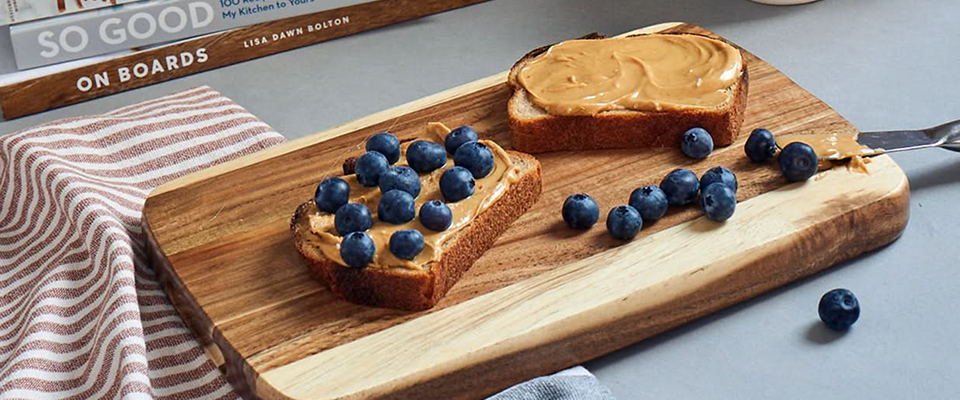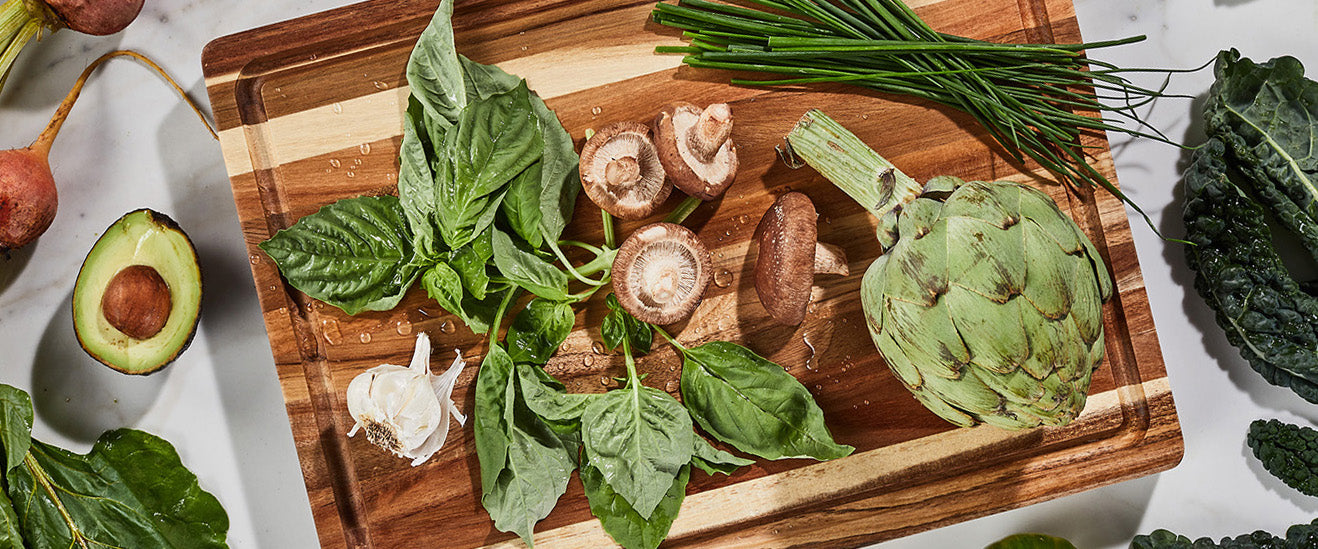Gifting has never been easier!
Perfect if you're short on time or are unable to deliver the gift yourself. Enter your gift message and select when to have it sent.

Sustainably Sourced & Handcrafted Acacia
Every board begins with high-quality acacia wood, chosen for its hardness, natural water resistance, and distinctive grain patterns. Acacia is a responsibly sourced hardwood that balances durability and lightness, making it ideal for cutting boards you’ll reach for every day. Our acacia boards are compact, lightweight, and designed for quick prep, making them a perfect fit for busy kitchens.

Lightweight & Low-maintanence
Acacia wood’s naturally lighter weight makes these boards easy to handle, whether you’re moving them around the kitchen, cleaning up, or flipping them for multi-use. Known for being lower-maintenance than denser hardwoods like maple or walnut, acacia requires less frequent oiling while still offering excellent durability. It’s a great choice for first-time board owners and experienced home cooks alike.
Absolutely! Acacia is naturally water-resistant, features striking grain patterns, and offers an excellent balance of beauty and practicality at a more accessible price point than teak or walnut.
It sure is. Indigenous to Australia, acacia can grow in various areas, including Africa, Europe, and Asia, making it a popular choice for those seeking sustainable wood materials.
Acacia trees grow quickly, making them cheaper to cultivate. Acacia also has a straight, dense grain that allows more usable lumber per tree, meaning less waste and more efficiency in production.
Wash by hand with warm water and mild soap—harsh soaps with alcohol (like Dawn Powerwash) can strip the wood’s natural oils, causing it to dry out. Then dry with a clean towel, and prop it on its side to fully dry. Skip the dishwasher and never soak it in water—acacia may be durable, but too much moisture is still a no-go. Dry immediately and store upright to prevent warping.
We recommend using a food-grade mineral oil and beeswax blend for an easy, all-in-one solution. Avoid cooking oils like olive, avocado, and others, as they can go rancid and damage the wood. Because acacia boards are lower maintenance than walnut and maple, we recommend oiling them every 3 to 4 weeks to keep them in optimal condition.